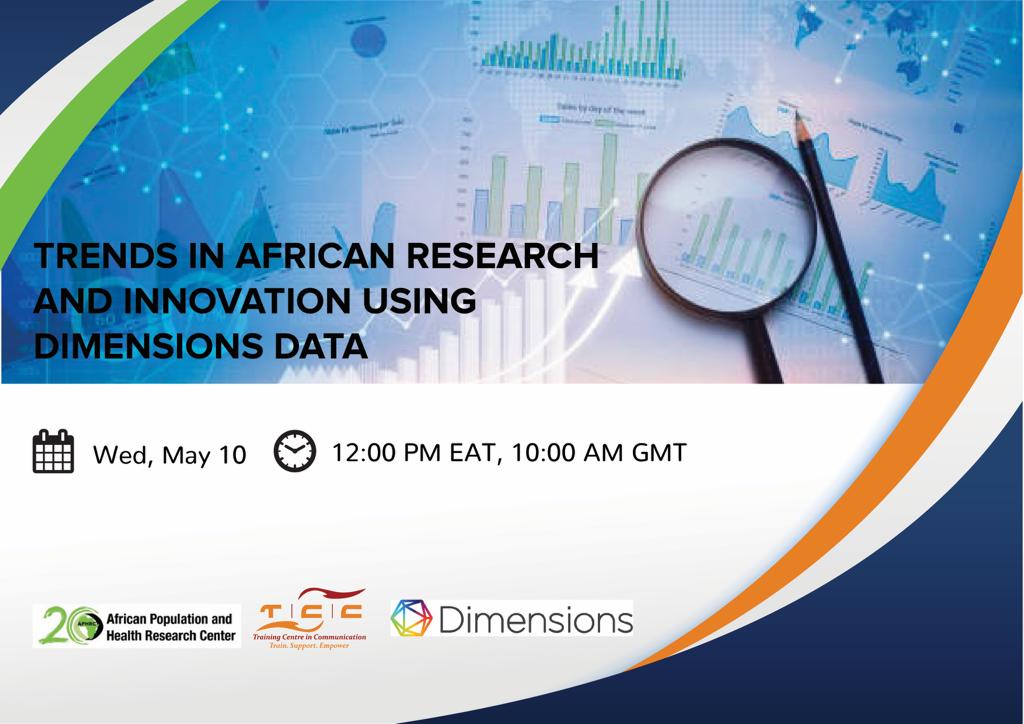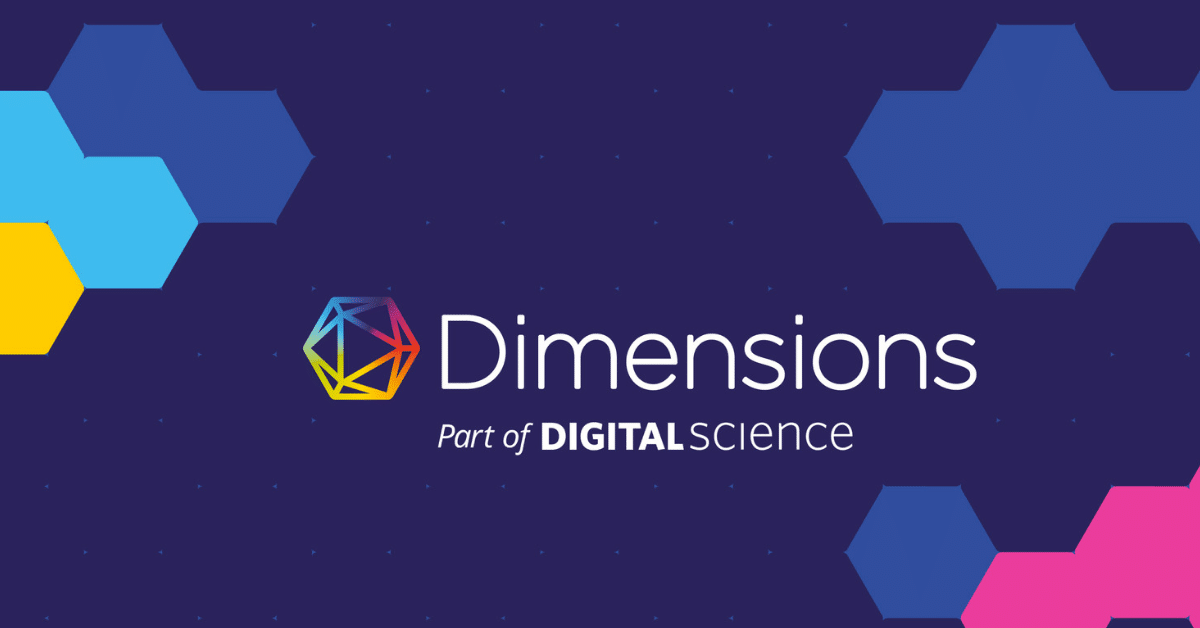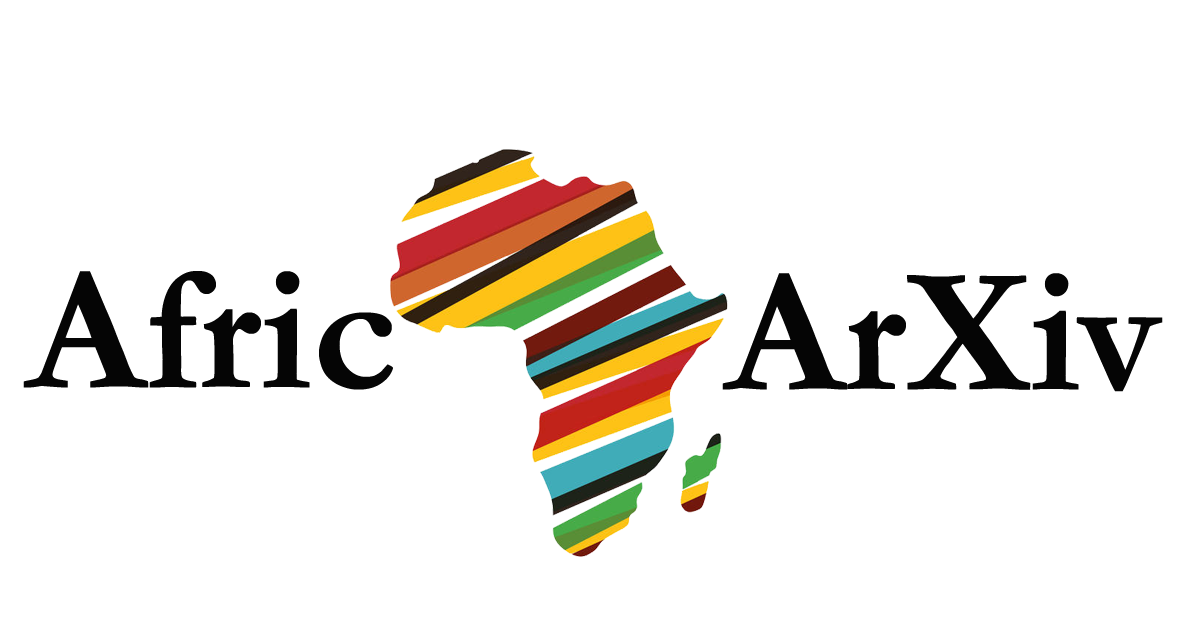There is a growing emphasis on connecting scholarly research to tech transfer and innovation opportunities.
This webinar (recording forthcoming) delved into the latest trends and advancements in African research and innovation.
Using Dimensions data, the expert panel demonstrated how organizations can track industry-university collaborations with high-impact tech transfer.
This webinar discussed how this data can inform strategic planning through the following activities:
- Explore the academic, social, and economic impact of research in Africa and identify emerging trends related to the UN's Sustainable Development Goals.
- Monitor national and international collaboration networks
- Benchmark university research at the institutional, national, and international levels
- Assess new and existing open-access publishing
- Inform funding and grant strategies inside and outside Africa
- Conduct horizon scanning to identify emerging trends in research output.
- Take advantage of this opportunity to gain valuable insights into trends that will help shape the future of research and development.
- Moderator: Joy Owango - Founding Director of the Training Centre in Communication (TCC Africa). TCC Africa the first African-based training centre to teach effective communication skills to scientists
- Dr. Evelyn GITAU - African Population Health Research Center (APHRC)
In terms of data sharing, our Data Science Program (DSP) has developed a bold vision for strengthening the African data ecosystem The DSP goal is to “maximise the power of data for population and health research in Africa through creation of a centralised center for Africa-led data sharing, data custody and application of state-of-the-art big data analytics to foster advances in health in Africa” The program is committed to initially establishing data governance structures and data architecture systems as a priority. We are therefore collaborating with specific countries and institutions to provide better platforms for data sharing and to enhance the use of some of the platforms that already exist.
- Evangelia LIPITAKIS Product Solutions Manager. Dimensions & Altmetric at Digital Science
- Emilie ALAGHA Technical Specialist Digital Science
Dimensions has been found to have better global coverage than other databases in an independent analysis: The effect of data sources on the measurement of open access: A comparison of Dimensions and the Web of Science
FACEBOOK: Training Centre in Communication
TWITTER:@Tccafrica HASH TAG: #SciComm #TCCat15
LINKEDIN: Training Centre in Communication (TCC Africa)
For more on Training Centre in Communication please go to: www.tcc-africa.org
TWITTER:@Tccafrica HASH TAG: #SciComm #TCCat15
LINKEDIN: Training Centre in Communication (TCC Africa)
For more on Training Centre in Communication please go to: www.tcc-africa.org
Upcoming event:
- SARIMA is a membership organization for research and innovation professionals and managers. Its purpose is to strengthen research and innovation (R&I) in Southern Africa and ensure that there is social and economic development of the region.
- SARIMA provides a platform for engagement between R&I managers coming from a variety of organisations that are involved in the R&I in the region.
- It operates at an institutional, national and international level, as well as across the value chain, from research through to successful innovation. SARIMAs key focus areas include research management, innovation and technology transfer and Africa engagement.
- SARIMA’s mandate stretches from management of research through the continuum to innovation, and its presence in the fast developing African continent, makes it and it’s sister African organisations.
- The sister organisation are the Eastern African Research and Innovations Management Association (EARIMA) and the Western African Research and Innovations Management Association (WARIMA), etc. fairly unique.
Research4Life provides institutions in low-and middle-income countries with online access to academic and professional peer-reviewed content. We aim to improve teaching, research and policymaking in health, agriculture, the environment and other life, physical and social sciences.
- Since 2002, Research4Life has provided researchers at more than 11,000 institutions in over 125 lower- and middle-income countries with free or low-cost online access to up 205,000 leading journals and books in the fields of health, agriculture, environment, applied sciences and legal information.
- Research4Life does this in partnership with organizations in the fields of scholarly communications, technology and international development: WHO, FAO, UNEP, WIPO, ILO; Cornell and Yale Universities; the International Association of Scientific, Technical & Medical Publishers and more than 200 international publisher partners.
- There are five content collections: Research for Health (Hinari), Research in Agriculture (AGORA), Research in the Environment (OARE), Research for Development and Innovation (ARDI) and Research for Global Justice (GOALI).
Dimensions
Dimensions makes it easy for researchers, librarians and other players in the research ecosystem tonavigate the many links between grants, publications, clinical trials, patents, and policy documents.- Because Dimensions maps the entire research lifecycle, you can follow research from funding through output to impact.
- Dimensions contains over 150 million research items, allowing users to find for a given study the cited and citing publications, related grants, supporting funders, article metrics, the related patents, clinical trials, policy documents, datasets, and more.
- The platform contains data and expertise from Digital Science’s companies ReadCube, Altmetric, Figshare, Symplectic, Digital Science Consultancy and ÜberResearch.
- Dimensions is accessible via Research 4Life: Research4Life users at eligible institutions across the world and across the five different programs (Hinari, AGORA, OARE, ARDI and GOALI) can freely use the platform.
AfricArxiv
AfricArxiv is a community-led digital archive for African research communication. It provides a platform to upload and showcase research manuscripts, research reports, datasets, presentations, posters, and other research outputs.By enhancing the visibility of African research, it fosters discoverability and collaboration opportunities for African scientists on the continent as well as globally.
AfricArxiv is building an Africa-owned Open Access repository to curate and archive research manuscripts, datasets, reports, presentations, posters, theses, audio/visual files, and more decentrally across various locations on the African continent.
In order to achieve this, AfricArxiv is currently in the process of anchoring AfricArXiv at the UbuntuNet Alliance in Malawi to establish hosting of African research locally and on self-managed open-source repository solutions. This option for content hosting will be available later this year (2023).
AfricArxiv is building an Africa-owned Open Access repository to curate and archive research manuscripts, datasets, reports, presentations, posters, theses, audio/visual files, and more decentrally across various locations on the African continent.
In order to achieve this, AfricArxiv is currently in the process of anchoring AfricArXiv at the UbuntuNet Alliance in Malawi to establish hosting of African research locally and on self-managed open-source repository solutions. This option for content hosting will be available later this year (2023).
Jo Havermann: Trainer & Consultant fostering Global Research Equity through Open Science practices (Berlin, Germany)
At AfricArXiv, we have created country profiles and are working towards institutional profiles to display research dissemination and Open Access (OA) adoption. Would be great to see how each our efforts can be aligned with each other for the wider community and benefits :)
Digital Science
The software that researchers, academic institutions, publishers, funders, and industrial research organisations used at that time, was largely home-built or niche. Digital Science believed it could develop and deliver the high-quality software tools that researchers deserved. To fulfil its mission, Digital Science is bringing together a team with a wide range of experiences, from software development to business development, and pharma to open science, to research.
Related PAEPARD blog posts on SARIMA/WARIMA/EARIMA :
- 21/12/2010 Strengthening Research and Innovation Management in Africa and the Caribbean
- 22-23/10/2012. Accra, Training workshop on the FP7
- 22-25/05/2017. Windhoek, Namibia. Annual conference of the Southern African Research and Innovation Management Association














No comments:
Post a Comment